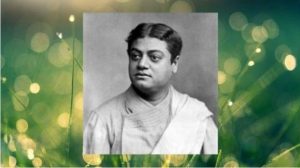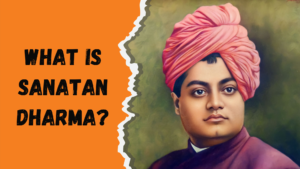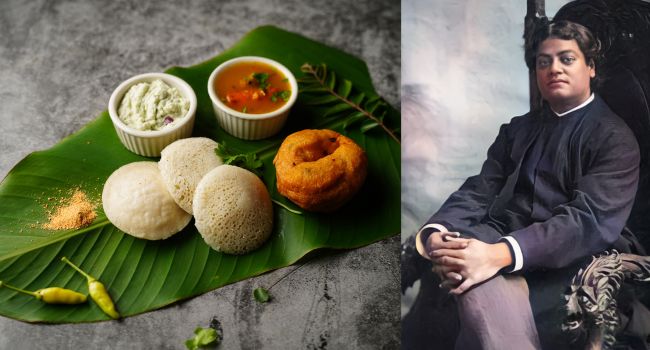
Over the last couple of years, India has seen a deepening vegetarian vs. non-vegetarian divide, the darkest feature of which has been the rise of cow vigilantism, where mobs of fanatic Hindus have beaten and lynched innocents Muslims and Dalits (lower castes) on the mere suspicion that they were eating beef.
Uplift your consciousness! Receive daily spiritual quotes from great Rishis. Subscribe to the Spiritual Bee on WhatsApp.
In the following essay which has been collated from the teachings of Swami Vivekananda (Complete Works, Volumes 3 and 4), Swamiji has some words of caution. He tells us that the goal of vegetarianism is to develop purity of mind (Sattva) and not to engender feelings of hatred and self-righteous superiority towards others. Ahimsa (non-injury) towards the cow, does not in anyway give one the liberty to kill others under the guise of saving Hindu culture!
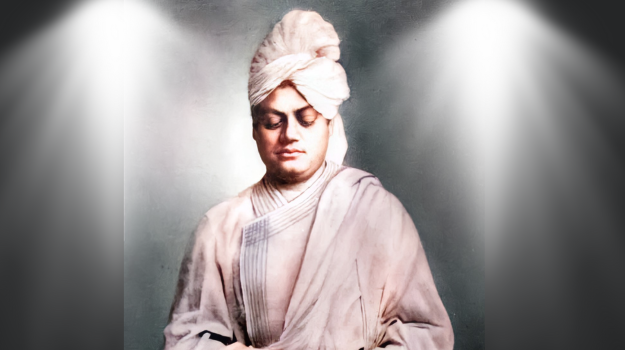
For the Gita teaches us Vasudevah Sarvam Iti – God, the Infinite Divine Consciousness is Immanent in all of Creation, in plants, in animals, in Hindus, in Muslims, in Christians and in Dalits. The soul of every living being is an unbreakable portion of this Divine Consciousness.
Therefore the aim of venerating the cow, as well as of practicing vegetarianism, is to realize the presence of this indwelling deity within all, through the enhancement of the feelings of love, empathy, kindness and brotherhood with all of Creation and not just a select few.
Only when these feelings increase within us, does the element of Sattva (purity) start to dominate our mind, and we begin to transcend the narrow bounds of ordinary human consciousness and progress towards experiencing the infinite Universal Consciousness in Samadhi or Moksha.
If on the other hand, we allow the feelings hatred and self-righteous superiority to grow within us, then we simply end up inflating our ego, the very element in spirituality which we are trying to get rid off, and instead of rising up in consciousness, we hasten our devolution to a lower consciousness as our mind gets increasingly clouded by Tamas (ignorance).
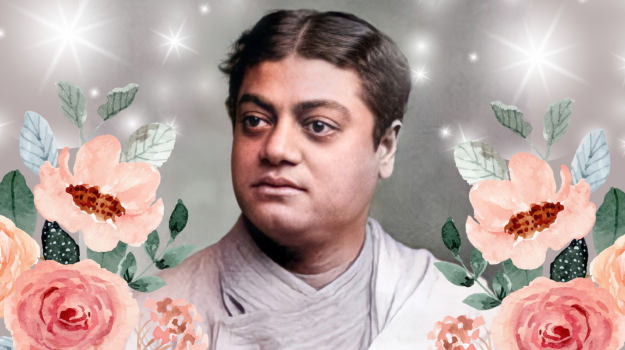
– Swami Vivekananda explaining how all living beings arise from One Consciousness called God, whose very nature is Ananda i.e. bliss or love. Thus love lies at the core of all.
For this reason, Swami Vivekananda has cautioned that on the spiritual path to God-realization (Samadhi), external practices such as venerating the cow, or being a vegetarian have significance only so far as they aid us in developing our inner purity.
If this purpose is not met, then these practices either devolve into mindless rituals with no corresponding elevation in our consciousness, or worse still they devolve into virulent fanaticism, which causes us to sink further into the muck of Tamas (ignorance).
Therefore we must be careful not to equate religion with externalities. Simply venerating the cow, or going to temples, or performing rituals and meditations, or being a vegetarian, or donating money does not make one religious or spiritual. Unless the heart has been opened, unless one has realized God, all external practices are in vain.
“Our scriptures declare again and again that religion is that which makes us realize the Unchangeable One. He who comes face to face with God, sees God alone in everything (good and bad) has become a Rishi.”
– Complete Works of Swami Vivekananda, Volume 6
Swami Vivekananda: If you believe me, I have seen a man (Pavhari Baba) who used to live in a hole and there were cobras and frogs living with him. Sometimes he would fast for days and months and then come out. He was always silent.
My old master (Sri Ramakrishna) used to say, “When the lotus of the heart has bloomed, the bees will come by themselves.” When the man is perfect from his heart, without a thought of hatred, all animals will give up their hatred before him. We must love all.
[And the one quality needed to love all is, Ahimsa.] Ahimsa means not injuring others by thought, word, or deed. This duty of non-injury does not simply mean the non-injuring of human beings and mercilessness towards the lower animals; nor, does it mean the protecting of cats and dogs and feeding of ants with sugar — with liberty to injure brother-man in every horrible way!
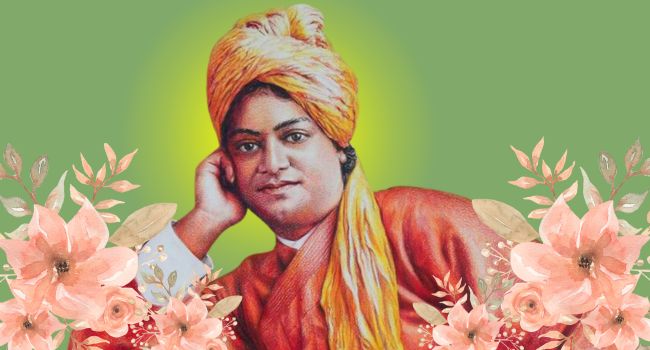
It is remarkable that almost every good idea in this world can be carried to a disgusting extreme. A good practice carried to an extreme and worked in accordance with the letter of the law becomes a positive evil.
The true test of Ahimsa (not injuring others by thought, word, or deed) is absence of jealousy. Any man may do a good deed or make a good gift on the spur of the moment, or under the pressure of some superstition or priest-craft; but the real lover of mankind is he who is jealous of none.
The so-called great men of the world may all be seen to become jealous of each other for a small name, for a little fame, and for a few bits of gold. So long as this jealousy exists in a heart, it is far away from the perfection of Ahimsa.
In our country there are vegetarian sects. They will take in the early morning pounds of sugar and place it on the ground for ants, and the story is, when one of them was putting sugar on the ground for ants, a man placed his foot upon the ants.
The former said, “Wretch, you have killed the animals!” And he gave him such a blow, that it killed the man. External purity is very easy and all the world rushes towards it. If a certain kind of dress is the kind of morality to be observed, any fool can do that. But when it comes to grappling with the mind itself, it is hard work.
The people who do external, superficial things are so self-righteous! I remember, when I was a boy I had great regard for the character of Jesus Christ. Then I read about the wedding feast in the Bible. I closed the book and said, “He ate meat and drank wine! He cannot be a good man.”
We are always losing sight of the real meaning of things. The little eating and dress! Every fool can see that. Who sees that which is beyond? It is culture of the heart that we want. One mass of people in India we see bathing twenty times a day sometimes, making themselves very pure. And they do not touch anyone. The coarse facts, the external things! If by bathing one could be pure, fish are the purest beings.
Bathing, and dress, and food regulation — all these have their proper value when they are complementary to the spiritual. That (spiritual) first, and these all (secondary) help.
The cow does not eat meat, nor does the sheep. Are they great Yogis, great non-injurers (Ahimsakas whose thoughts, words and deeds are perfectly controlled)? Any fool may abstain from eating this or that; surely that gives him no more distinction than to herbivorous animals. The man who will mercilessly cheat widows and orphans, and do the vilest deeds for money is worse than any brute, even if he lives entirely on grass.
The man whose heart never cherishes even the thought of injury to anyone, who rejoices at the prosperity of even his greatest enemy, that man is the Bhakta (true devotee of God), he is the Yogi, he is the Guru of all, even though he lives every day of his life on the flesh of swine.
Therefore we must always remember that external practices have value only as help to develop internal purity. It is better to have internal purity alone, when minute attention to external observances is not practicable.
But woe unto the man and woe unto the nation, that forgets the real, internal spiritual essentials of religion, and mechanically clutches with death-like grasp at all external forms and never lets them go. The forms have value only so far as they are expressions of the life within. If they have ceased to express life, crush them out without mercy.
Connect your consciousness with the Infinite Consciousness of God-realized sages. Subscribe to daily quote broadcast via WHATSAPP OR INSTAGRAM OR TELEGRAM

